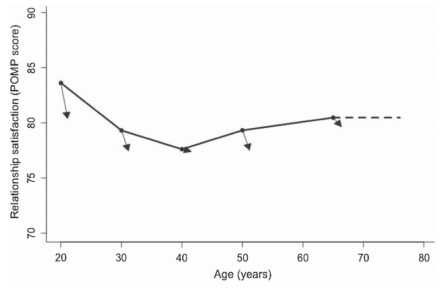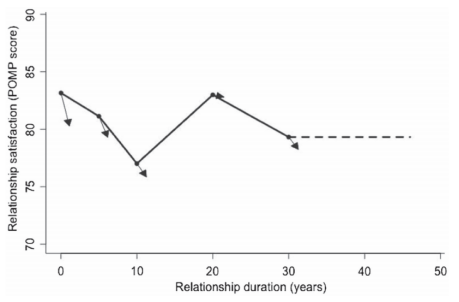疫情一代——成长于疫情时代,对儿童有何影响
延伸阅读:
ACEs & PCEs/负面与正面童年经历
关键词:
认知、社交、语言能力发育缓慢;不愿分享;难以融入集体;不安全感;家暴与忽视;抑郁;强迫症症状强化;学习障碍;过度肥胖;心脏疾病;胆小害怕;紧张状态;检举告发;依赖性增强;内敛;免疫力降低;贫富儿童差异扩大…………
Growing Up in a Pandemic: How Covid is Affecting Children’s Development成长于疫情时代:新冠疫情如何影响儿童发育
While Covid-19 is typically benign in children, the pandemic could have long-lasting impacts on society’s youngest members. With childcare programs closed and social distancing measures in place, many children are missing out on opportunities for development.
尽管新冠病毒通常在儿童群体中症状温和,但其可能对这些祖国花朵们产生持久影响。随着各种儿童看护设施的关闭以及社交距离的实施,很多儿童错失了发育的机会。
“Children are not getting the cognitive and social stimulation that they would normally get outside their home,” said Dr. Michelle Aguilar, the head of pediatrics at Venice Family Clinic in Los Angeles, California. Providers have noted delays in speech and language as well as trouble sharing and being in groups.
“孩子们并没有得到他们通常会在家庭之外得到的认知与社交刺激要素,” 加利福尼亚洛杉矶威尼斯家庭诊所儿科主任Michelle Aguilar表示。儿童服务提供者们已经注意到儿童群体中的语言发育迟缓、不愿分享、难以融入群体等迹象。
But for children, a delay in social skills may not be the only consequence of the pandemic. With many parents undergoing financial stress, children face higher rates of housing and food insecurity. And others are subject to rising rates of neglect and household dysfunction – all of which can affect a child’s trajectory into adulthood.
但对孩子们而言,社交技能的迟缓发展,可能并非疫情的唯一后果。疫情中很多父母经历着经济压力,因此孩子们在住所和饮食方面产生着更高程度的不安全感。其他一些孩子则面对着更高程度的忽视与不健康的家庭关系——所有这些都会影响孩子进入成年期的人生轨迹。
“Numerous studies have shown that early life experience and adverse life events have had a negative impact on the health and development of children,” said Aguilar.
“大量研究已经表明,早期人生经历与负面人生事件对儿童的健康与发育具有负面影响,” Aguilar表示。
In this episode of the podcast, we explore the full scope of consequences for children growing up in the Covid-19 pandemic, from the short term effects to long-term implications. We speak with experts in the field and health providers, including Venice Family Clinic’s Dr. Michelle Aguilar and early head start director, Stacey Scarborough.
在本期播客中,我们全面探讨了成长于新冠疫情时代对儿童造成的各种短期到长期影响。我们采访了该领域专家与儿童医疗服务提供者们,包括来自威尼斯家庭诊所的 Michelle Aguilar博士与早教总监 Stacey Scarborough。
Transcript/播客文本
COVID-19 is typically benign in children, usually presenting as a mild flu or nothing at all. But for society’s youngest members, the effects of the pandemic go beyond the disease itself.
新冠病毒在儿童群体中表现温和,通常表现为轻度流感或无症状。但对社会这些最年轻成员而言,这一疫情的影响远远大于疾病本身。
From the moment a child is born socializing plays an important role in their development, from learning to share to honing their language skills. But with social distancing measures in place, many kids are missing out on opportunities to play. So how is that affecting their development?
从一个孩子出生的那一刻,社交就对其发育产生着重要影响,从学习分享,到练习语言技能。但由于社交距离措施的实施,很多孩子都失去了玩耍的机会。那么,这对他们的发育有何影响呢?
I spoke with Stacey Scarborough, the head of Venice Family Clinic’s early head start program in Los Angeles, California.
就这一点,我采访了加利福尼亚洛杉矶威尼斯家庭诊所早教项目主管 Stacey Scarborough。
SCARBOROUGH: “We do see such a heightened awareness of everything. Like they’re constantly telling on their peers: ‘They touched this and didn’t wash their hands,’ ‘My mom didn’t brush my teeth.’ So they are telling everything because they have such a heightened awareness and they’re really into wrong and right at this age. So our providers have been very cautious, like, ‘What’s happening with this generation?’ They’re constantly telling on each other. So there’s a lot of mental health to help kids relax and play and not be so concerned about everything, which they are.”
Scarborough:我们的确看到了孩子们对一切都有更强烈的意识。比如,他们总是在揭发他们的同伴:“他们碰了这个,而且没有洗手,”“我妈妈没有帮我刷牙。”他们之所以总是在告状,是因为他们如今对这类事情有着更强烈的意识,而且在他们这个年龄阶段,他们非常在意是非对错。所以,我们的员工们都非常警惕,奇怪“这一代人到底是怎么了?”他们不断在相互检举揭发。所以,我们有很多医疗健康项目,帮助孩子放松、玩耍,不要像现在一样对一切都紧张得不得了。
RAFANELLI: “Do you think the lack of social interaction has affected kids in any way?”
Rafanelli:您认为社交互动的缺乏是否已经对孩子们造成了某些影响呢?
SCARBOROUGH: “Yeah. I don’t know if I can come up with a very specific story, but they’re very aware that they need to stand apart, they’re very aware that they shouldn’t touch another item that somebody has. And that’s hard for sharing. This is an age where you learn how to share and we’re kind of encouraging no sharing. And that’s a big skill that you need as an adult to bring into the workplace. They’ll learn it later, but it’s a harder thing to learn when you’ve learned not to share under trauma and then we’re going to say later in life, “You have to share. You’re not a good human being if you don’t know how to share.’ So those soft skills are tough right now to be learning when they’re supposed to be learning them.”
Scarborough:是的。我不知道我是否能想出一个具体的例子。但他们的确是非常清楚地知道他们必需和别人保持距离、不能触碰其他人地物品。而这些规则很难培养分享意识。在这个年龄,孩子们本该学习分享,而我们却在某种程度上鼓励不要分享。而且,分享,是孩子成年后进入职场所需的一项重要技能。他们在之后会学习分享,但是当你在创伤事件之中学会了不要分享,但在之后我们又会说“你必须分享,你不分享的话你就不是好人,”那么就会人们更难以学会分享。所以,在当前他们本应学会这些软技能的时期,这些软技能是很难获得的。
But interpersonal skills like sharing or learning how to work in a group are not the only areas of concern. Stacey and other providers at the clinic have noted delays in speech and language
但人际技能,比如分享、或者知道如何融入群体,并非仅有的令人担忧的方面。Stacey和诊所内其他同事也注意到了孩子们在语言方面的发育迟缓。
AGUILAR: “They’re lacking from those social interactions that they would have normally gotten from people outside their homes. They’re lacking that play time with other children.”
Aguilar:他们缺乏本来通常可以在家庭之外获得的社交互动,缺乏与其他孩子的玩耍时间。
Dr. Michelle Aguilar says during the pandemic, many kids are receiving less attention.
Michelle Aguilar 表示,在疫情期间 ,很多孩子得到的关注减少。
AGUILAR: “Many of our caregivers are now under a lot of stress and having to divide their attention to other children who are older and would have normally been at school. So the parent used to have time and attention to give to the younger child.”
Aguilar:很多看护者当前承受着很大压力,而且不得不将注意力分给通常本应在学校的那些年龄较大的孩子。父母们曾经是将时间和注意力放在年龄较小的孩子身上。
For many parents, money has become a major source of stress. With millions of Americans out of work, the pandemic’s financial fallout has been significant. And for those struggling to pay rent or put food on the table, providing for their children’s basic needs can be difficult. During the pandemic, housing and food insecurity have skyrocketed, at the same time as rates of domestic abuse and neglect have increased. These kinds of stressful events, referred to as adverse childhood experiences, can have long-term consequences.
对很多父母而言,很大一部分压力是经济压力。随着数百万美国人失业,疫情造成了严重的经济后果。对那些难以支付房租或食物的父母来说,满足孩子的基本需求就会变得困难。在疫情期间,住房与食物不安全感飙升,同时,家暴与忽视发生率攀升。这类充满压力的事件,被称为负面儿童经历,会产生长期后果。
AGUILAR: “So studies have demonstrated that adverse childhood experiences have detrimental effects on brain development and overall health. So we see long-term effects: learning disabilities, depression, obesity, heart conditions. So, it does have a huge impact.”
Aguilar:研究已经表明,负面童年经历会对大脑发育与整体健康产生危害。所以我们会看到长期后果:学习障碍、抑郁、过度肥胖、心脏疾病等。所以其的确影响巨大。
RAFANELLI: “Have you had any patients that have experienced what you would consider an adverse childhood experience because of the pandemic?”
Rafanelli:在你的患者中,是否有人经历过在你看来是因疫情导致的某种负面童年经历呢?
AGUILAR: “I would say yes. Families have had to separate when a caregiver or a family member becomes ill. They’ve had to separate for some time to stay with other family members, so they do not get exposed. Housing insecurity: having to move into multi-generational homes that are now crowded. So, yes there have been ongoing adverse childhood experience due to the pandemic leading to toxic stress.”
Aguilar:我会说是。当某位看护人或家庭成员患病时,家庭必需分开。他们不得不离开这位家人,去和其他家庭成员生活一段时间,以避免被感染。而在住房不安全感方面,一些孩子不得不和多代人同堂的家人生活在一起,导致非常拥挤。所以,是的,的确是有因为疫情而导致的持续存在的负面童年经历,这些经历给孩子们带来充满危害的压力。
The pandemic’s effects on children are not only catching the attention of parents and pediatricians. A handful of researchers are looking closely at the issue, including Dr. Rashmita Mistry, a professor in the department of education at the University of California at Los Angeles.”
疫情对孩子们的影响不仅仅受到了父母和儿科医生们的关注。一些研究人员也在密切关注这一问题,其中就包括洛杉矶加利福尼亚大学教育系教授 Rashmita Mistry 博士。
Dr. Mistry is interested in how major historical events affect the children who live through them. She’s the author of a recent study on how the pandemic is likely to affect children’s health and wellbeing.
Mistry博士感兴趣的研究内容是重大历史事件对经历这些事件的儿童们有何影响。她也是最近一项关于疫情可能对儿童健康与幸福产生何种影响的研究结果的作者。
RAFANELLI: “So what are the long-term implications of experiencing a pandemic at a young age?”
Rafanelli:在低龄时期经历疫情,有何长期影响呢?
MISTRY: “So let’s take the example of children’s cognitive development and academic achievement. So there’s really strong, compelling evidence that, especially for children from lower income households and backgrounds, that access to high quality early childcare programming really helps lessen some of the achievement gaps that have been documented for children from wealthier families and households as compared to lower income households. So if the pandemic hits, and a parent loses their job and their child care provider is shut down because of concerns around the spread of the virus or their provider shut down because they can no longer afford to stay open or because the parent can’t afford to send their child to that program because they can’t afford it, then the child has lost access to critical resources that are likely to help support not only their cognitive development, but also their mastery of basic foundational academic skills, as well as key social emotional learning that we know happens in early childcare programs and spaces. And that’s not to say that parents can’t and don’t do a lot of that support at home, but for lower income children, we know access to high quality early childcare programs are also really, really important and instrumental.”
Mistry:让我们以儿童的认知发育与学习成绩为例。有很有力的证据表明,尤其是针对来自低收入家庭和背景的儿童而言,有机会获得优质早期儿童看护项目,从书面数据信息来看,能够有效缩小来自富裕家庭与叫低收入家庭孩子之间的成就差距。所以,如果疫情来袭,一位父母失业,而其孩子所在的幼托机构又因为病毒扩散之担忧而被关闭,或因无法承担疫情期间继续营业而主动关闭,或儿童父母已承担不起继续在这一机构就读的费用,那么,孩子就失去了获得关键资源的机会,而这种关键资源本可能不仅会促进他们的认知发育,也有助于他们掌握基本学科知识,以及早期儿童看护活动与机构中普遍提供的关键社交情商学习内容。这并不是说父母在家无法提供很多支持,但是对低收入家庭的孩子而言,我们知道,获得高品质早期看护服务,真的至关重要。
These kinds of disruptions, don’t just cause temporary setbacks. Dr. Mistry says they can have consequences that continue throughout the long-term.
这种干扰,不仅导致短暂的退步,而且还会产生长期影响。
MISTRY: “So we’re now moving beyond the pandemic, the child is a four or five-year-old enrolled in school and they’re going to maybe start a little bit further behind in terms of that key foundational academic knowledge or those kind of social, emotional skills. So they’re going to have more catch up to do. But the child, let’s say for example, is attending a neighborhood school in a lower-income community that maybe doesn’t have the same level of resources or the same level of teacher qualifications or is just under-resourced in ways that better funded public schools might not be. So that child’s educational experience is further compromised in that circumstance.
Mistry:比如说,疫情结束,孩子四到五岁,读书了,他们可能就会在关键基本学科知识或社交和情商技能方面较为落后,因此他们就会需要花大量时间精力去追赶。但这个孩子,比如说,就读的学校是一个低收入社区内的社区范围学校,与一些资金更充足的公立学校相比,这个学校可能并不具备的同水平资源或教师资质,或者在一些方面完全资源不足。这样,孩子的教育经历就进一步受到冲击。
Had that child been able to attend a higher quality school maybe that catch-up would have happened and would have been sufficient, but if that child then continues to attend an under-resourced school that is struggling in its own ways due to a lack of public funding and support, then that child’s cognitive and academic and social, emotional development is going to continue to be compromised in ways that are important. And we know that the third grade is this critical transition point. It’s not super fatalistic. But we know that if you haven’t really mastered those foundational skills by then, then those disparities just continue to widen, so kids continue to fall back or move forward based on these early educational opportunities and skills. So it’s really this like cascading effect. And again, if there aren’t points in the system to catch it and correct it, then what’s likely to happen is that there’s just going to be this accumulation of shocks and disruptions and disadvantages that are going to continue to play out.”
倘若孩子能够就读更好的学校,可能就能够完全追赶上去,但如果这个孩子继续就读一个因为缺乏公共资金和支持而艰难存续的、资源不足的学校,那么这个孩子的认知、学业、社交和情商发展都会受到严重掣肘。我们知道,三年级是一个关键过渡期,倒也并不是说一锤定终生,但我们知道,如果在三年级之前你还没有掌握这些基本技能,那么这些差距只会继续扩大,孩子会在之前早期教育机会与技能的基础上,要么继续落后,要么继续进步。所以,真的就像是级联效应(瀑布效应)。这时,如果在整个系统过程中没有在某个阶段去捕捉并纠正这一趋势,那么,很可能发生的情形是,接下来就是越来越多的各种冲击、干扰和劣势继续充分发挥影响。
RAFANELLI: “So it seems like you’re saying that economic resources–child’s socioeconomic status–plays a major role in their healthy development. But can you talk more about how the pandemic, specifically, plays into this?”
Rafanelli:听起来你好像是说经济资源——孩子的社会经济地位——在孩子得健康发育中扮演者主要角色。但你能具体讲一下疫情在这方面的影响吗?
MISTRY: “The pandemic in some ways is making a lot of this a lot more visible. It’s been there for a while, at least speaking within a U.S. context. Issues around childhood poverty have existed. We have almost one in four children pre-pandemic that were living in families that were officially designated as poor. And so poverty is not new in the pandemic. It’s been elevated.
Mistry:这次疫情从一些角度上放大了这种现象的很多方面。这种现象已经存在了很长一段时间,至少在美国是如此。童年贫困相关问题早已存在。在疫情之前,每4个孩子中就有一位是生活在官方认定的贫困家庭中的。因此,贫困并不是什么疫情期间的新生事物,而只是更严重化了。
Clinicians, caregivers notice the effects of the pandemic on child development 门诊医生、儿童看护人员注意到疫情对儿童发育的影响
As somewhat normalcy returns to cities across the U.S., caregivers are noticing the pandemic’s impediment to child development. Experts are observing that children coming into speech-language pathology clinics are showing symptoms of literacy delays, language delays and timidity.
随着美国各城市在一定程度上慢慢恢复正常,儿童看护人员注意到了疫情对儿童发育所产生的负面影响。专家们观察到,前往语言病理门诊就诊的儿童表现出读写能力发育迟缓、语言发育迟缓和怯懦等。
“When the pandemic started, people didn’t want to be social,” said Chandler Dotson, a speech-language pathologist, or SLP, based in California with eight years of experience.
“在疫情刚开始时,人们不想社交,”在加利福尼亚工作,有着8年经验的语言病理学家(SLP) Chandler Dotson说道。
Children who have been isolated at home since the beginning of the pandemic, during the most important years of development, have had issues assimilating back into social settings.
从疫情之处就被隔离在家的孩子们,在最重要的发育时期,表现出了难以融入社交场合的问题。
Small children born during the pandemic, colloquially dubbed ‘COVID babies,’ “were only in the house with their parents, and their parents didn’t really require them to say a lot of things that the world would require of them,” Dotson said.
出生于疫情期间的低龄幼童,被人们称为“新冠宝宝”,他们“只能和父母待在家中,而且父母们往往不像这个世界一样需要他们讲很多话,” Dotson说。
Children today are much more reserved than they used to be, Dotson added, attributing this change to a lack of diverse social interaction. Dotson said her patients express a newfound hesitancy towards playing with other children or exploring toys.
当今的孩子与以前相比更加内敛得多,Dotson补充说。他将这一变化归因于缺乏多样化社交互动。Dotson说她的患者们如今在和其他孩子玩耍,以及探索玩具方面都开始表现出了之前没有的犹豫态度。
“They’re shy. They’re almost timid and scared to a certain extent,” said Micheala Fryer, another SLP based in Alabama.
“他们很害羞。他们几乎在一定程度上胆小且感到害怕,” 另一位位于阿拉巴马的SLP专家 Micheala Fryer表示。
Natalie King, a graduate medical sciences student at Boston University, has noticed these changes in her 6-year-old nephew.
“When he sneezes, he sneezes into the air and doesn’t cover his nose with his elbow because he is so used to sneezing with a mask on and not having to cover his face,” King said.
波士顿大学的一位医疗科学研究生 Natalie King在自己6岁的侄子身上也注意到了这些变化。“当他打喷嚏时,他直接就打,而不是用肘部遮住鼻子,因为他已经习惯了带着口罩打喷嚏。”
Children who have grown up during the pandemic have adopted life with coronavirus guidelines as their version of normal. This can hinder their ability to understand and reciprocate common social cues.
疫情中长大的孩子已经将新冠预防指南纳入了自己的常态生活。这可能会阻碍他们理解和应用我们常用的社交信号。
Dotson said that communication with others could become complicated without being exposed to facial expressions due to masks. Her patients would be confused when she made a sarcastic comment or joke.
Dotson 表示,在被口罩遮住面部表情的情况下,与他人之间的沟通会变得复杂。当她说一些反讽的话或者看玩笑时,她的患者会感到困惑。
“It was almost like they can’t tell if you’re kidding,” Dotson said.
Fryer noted that the pandemic caused some kids to develop an increased dependency on adults.
“几乎就像是他们根本分辨不出你是不是在开玩笑,” Dotson说。
Fryer 指出,这一疫情,导致了一些孩子对成年人更加依赖。
“When we had to do virtual therapy, a lot of my kids were not able to participate independently,” Fryer said. “They had to be accompanied by a parent, grandparent, caregiver of some sort just to help them participate in a therapy session.”
“我们不得不网上诊疗时,很多孩子无法独立参与,” Fryer说,“他们需要有一位父母、祖父母或看护人之类的成年人帮助他们参与诊疗。
She explained that this dependency is not completely negative. This increased engagement can allow caregivers to become more knowledgeable about their child’s condition and wellbeing.
她解释说,这种依赖也并非完全是坏事。看护人更多参与,可以让看护人更了解孩子的状况与身心健康状态。
Adrian Rzepnick, an SLP and clinical director currently based in Boston with more than 40 years of experience, said an unintended effect of the pandemic is that many ‘COVID babies’ have not been exposed to prevalent germs, making them more prone to catching and spreading colds and flu viruses.
“They have zero natural immunity due to restricted environments and masks,” Rzepnick said. “ I think we will have community-acquired infections for the next one to two years.”
Adrian Rzepnick,位于波士顿,有着40年职业经验的SLP和门诊主管说道,这一疫情还有一个连带后果,即,很多”新冠宝宝“们没有暴露于一些常见病菌之下,这就让他们更易于感染和传播感冒和流感病毒。
”由于环境受限以及佩戴口罩,他们几乎没有天然免疫能力,” Rzepnic说,“我认为,在接下来的一到两年,我们会看到一些社群感染病例。”
Despite many initial concerns, both experts and caregivers have observed some positive results in mask-wearing.
“Because [my nephew] had to wear a mask for so long, he doesn’t suck his fingers anymore,” King said.
Body language is another area in which pandemic children are far more advanced than pre-pandemic children. Because they compensate for a face hidden behind a mask, pandemic children have learned to become more expressive in their communication and body language.
“The students who were focused on reading mouths were forced to learn to read the entire face, body, cheeks, posture and body orientation,” Rzepnick said.
尽管最初有很多担忧,但专家和看护者们也观察到了佩戴口罩所带来的一些积极影响。
“因为(我侄子)不得不这么长时间佩戴口罩,他已经不再吮吸手指了,” King说。
而肢体语言方面,也是疫情儿童与疫情前儿童群体相比表现更佳的领域。因为肢体语言可以弥补被遮挡的面部表情,因此疫情儿童们已经学会了在沟通和和肢体语言中更有效去表达。
“曾经只专心观察唇部动作的学生们现在被迫去观察整个面部、肢体、面颊、体态和身体方向,” Rzepnic说。
Younger children have adjusted surprisingly well to all the pandemic demands, but older children have had a more difficult time transitioning.
From having frequent social interaction with other children at school and playgrounds, school-age kids have had to make numerous compensations and lifestyle adjustments. Because of these difficult transitions, Fryer said that progress in her patients has been slower throughout the pandemic.
更低龄的孩子对疫情需求表现出了出人意料的出色调整适应能力,但年龄较大的孩子则较难以调整适应。
从之前在学校和游乐园与其他孩子频繁社交互动,到疫情期间,学龄儿童不得不做出众多补偿和生活方式调整。因为这些充满挑战的种种过渡,Fryer说,她的患者在整个疫情之间的进展一直都较为缓慢。
“I would go as far to say that school-age kids were hit the hardest. It’s hard to say if it was a lack of progress, or if it’s just slower progress being made because they’re having to overcome so many other things going on in their lives,” Fryer said.
With coronavirus cases declining in the U.S., children will have to adjust and shed the masks that protocols that they have adapted to. Their inherent naivety allows them to adapt to their environment and sometimes even find joy in these changes.
“我甚至可以说,学龄儿童是受冲击最大的。很难说是缺乏进展,还是他们需要克服生活中在发生的其他众多事情,因此进展缓慢。” Fryer说。
随着新冠病例在美国下降,孩子们将不得不进行调整,摘下口罩,抛掉他们曾经已经适应了的众多规则。
他们固有的天真纯粹让他们能够适应新环境,有时甚至能在这种变化中找到乐趣。
The children themselves may be unaware of how the pandemic has affected them and will continue to affect them, but speech-language pathologists are thinking about a post-pandemic future with both hope and possible concern.
Rzepnick said she expects to see children in the future with “literacy and language delays that may take up to two to three years to meet age level expectations.”
孩子们自身可能根本就没有意识到这一疫情对他们产生了怎样的影响,将继续对他们产生怎样的影响,但语言病理学家们对后疫情时代则是希望与担忧并存。
Rzepnic说,她预计会看到未来的孩子“在读写能力和语言方面发育迟缓,可能需要两到三年时间才能赶上相应年龄预期水平。”
However, she believes that social skills will be able to develop naturally for most children, noting that some kids with underlying disorders “may be behind due to behavioral delays and lack of group therapy opportunities with peers.”
Dotson recommends daycare as early as possible to see the explosion of language and social pragmatics possible in young children.
These effects can also be reversed with some purposeful attention from the adults in these children’s lives.
“I’ve been telling this to all of the caregivers, all the parents I work with: just talk to your child. Just talk to them,” Fryer said.
但是,她认为,大多数孩子的社交技能会自然而然得到发展,同时指出,一些存在着某些障碍的孩子“可能会因为行为发育迟缓和缺乏与同伴一起的集体治疗机会而落后”。
Dotson建议尽早开始孩子的托管早教,以实现语言的爆炸发育和与年龄相符的社交语用(在社交活动中使用语言并与他人互动)能力。
如果儿童生命中的一些成年人能够专门针对上面提到的负面效应而给予关注,也可以逆转这些负面效应。
“我一直告诉我患者的所有看护者和所有父母们:和你的孩子多说话,多多益善!” Fryer 说到。
there’s reason to be optimistic 有理由保持乐观
In the current pandemic, researchers have already observed a rise in symptoms of depression among kids, and a worsening of symptoms in children and teens who already had obsessive-compulsive disorder. Ann Masten, a developmental psychologist who studies resilience at the University of Minnesota in Minneapolis, worries about children whose pandemic experience is compounded by other adversities such as poverty. But on the whole, she says, there’s reason to be optimistic about children’s long-term resilience. Parents can help by building a reassuring — and fun — environment at home.
当前疫情中,研究人员已经注意到了儿童群体中抑郁症状攀升,已经患有强迫症的低龄儿童和青少年症状加剧。位于明尼阿波利斯的明尼苏达大学的发展心理学家 Ann Masten将抗压能力作为其主要研究领域。她担心那些在疫情中还经历着诸如贫穷之类的其他负面因素的孩子。但整体上,她说,我们对孩子的长期抗压能力还是有理由保持乐观的。父母们可以在家中建立一种安抚和有趣的家庭环境。
**“resilience science.” What does that mean, and where did it come from?
“抗压力学”,具体是指什么?来源于何处?**
Resilience science is about how people — or families or communities or economies — adapt to challenges. It emerged around 1970, after World War II brought attention to the ways children are affected by traumas: concentration camps in the Holocaust, for example, or evacuations in the UK. Researchers, some of whom experienced the war when they were young, were trying to figure out what protects people from trauma or allows them to recover, so we could learn how to help others.
抗压力(韧性)学是关于人们或家庭或社群或经济如何适应挑战。其出现于1970年左右,在二战之后,让人们开始去关注创伤对儿童产生的影响:比如来自犹太大屠杀时期的集中营,或者英国的儿童以及老弱妇女转移计划等事件所留下的创伤。研究人员们,其中一些在人生早期也经历过战争,他们试图针对“是什么避免人们受到创伤影响,或让他们能够恢复”而找出答案,从而能够帮助他人。
We study different adversities, ranging from natural disasters to parents with mental health problems, to abuse or divorce — all kinds of challenges. I’m interested in how adversity affects development of social, emotional and learning skills, and impacts lifelong well-being. For example, how are kids getting along with other kids? Are they following the rules of the classroom and home, are they showing good academic achievement? Ultimately, we study outcomes most parents would hope for their children: to find their place in society and be happy.
我们研究不同负面事件,从自然灾难到精神健康有问题的父母,到虐待或离婚——各种挑战。我感兴趣的方向是,负面事件对社交、情绪和学习能力有何影响,对长期人生幸福有何影响。例如,孩子们与其他孩子相处得如何?他们是否遵守课堂和家庭中得规则?他们是否展现出良好的学习成绩?最终,我们研究大多数父母都会希望孩子实现的人生状态:在社会中找到属于自己的位置,幸福快乐。
**What does this kind of research tell us about resilience?
这类研究在抗压能力方面告诉了我们什么呢?**
There are an awful lot of kids who overcome risk and adversity and develop and do well. Years ago, I formulated what I call the shortlist: the resilience factors that kept coming up in studies of children and youth in many different situations.
有非常多的孩子克服了风险与逆境,实现了良好发展而且获得了不错的成就。多年前,我总结了一份清单:在针对很多不同情形中儿童与青少年的研究中,不断重复出现的一些抗压能力因素。
Having close relationships with caring, competent adults is always at the top of the list. In addition, children do better when they have good planning and thinking skills, but also when they believe in themselves, feel a sense of belonging and are motivated to achieve. As children get older, having a sense of purpose and meaning in life is an important protective factor. Kids with several of these factors, nurtured by resilient families and schools, are in a strong position to overcome adversity.
与充满关爱、有充足能力的成年人有亲密关系,始终占据该清单首位。另外,如果孩子具备良好的规划与思考能力,相信自己、有归属感,而且有上进心时,他们会获得更好成就。随着孩子年龄增长,有目标感和人生意义感,是一项非常重要的保护因素。有着上述因素中数项,在抗压能力强的家庭和学校中成长的孩子,更可能克服负面事件。
**In the face of such adversity, can we expect kids to be resilient?
面对如此负面经历,我们能期望孩子具有抗压能力吗?**
There’s reason to be optimistic. Research has shown us there’s tremendous recovery over time, once things get to a new normal. As activities like school and sports are restored, they can be powerful contributors to recovery.
我们还是有理由持乐观态度的。研究已经表明,当一切进入一种新常态,随着时间推移,孩子们会实现极大程度上的恢复。当诸如学校和体育活动恢复正常,他们将会非常有益于孩子们的恢复。
**What can parents do now to promote resilience in their kids?
家长们现在可以如何提升孩子的抗压能力?**
Listen to kids. Answer questions as honestly as you can, but in an age-appropriate and reassuring way.
倾听孩子。尽可能坦诚回答孩子的问题,但采用一种与孩子年龄相符、安抚的方式。
Maintain daily routines. Make sure there are opportunities to play: board games, puzzles, exercising together outside. And also, figure out ways to carry on with special occasions and celebrations, to the degree that that’s feasible. All these actions provide a sense that things are OK.
保持日常惯例。确保有玩耍机会:棋牌类游戏、拼图、一起到外面健身运动。另外,想办法在可行范围内继续开展一些特殊场合和庆祝场合的活动。所有这些活动都会让孩子感觉:一切都很好。
One of the most powerful protective factors in human life is hope, so another important one is to make plans for what you want to do when the pandemic ends.
人生中最强大的保护因素之一,是希望,因此,另一项重要建议,就是为疫情结束后制定一些想要去做的计划。
But one of the most important things parents can do is remember that they are the bedrock. They are providing a sense of belonging and security, and teaching by their own behavior and example. Make sure you’re taking care of your own health and well-being.
但还有一项最重要的,是父母要记住,他们是孩子的基石。父母给孩子提供一种归属感和安全感,孩子从父母的个人行为与示范中学习。因此,确保你照顾好自己的健康和心态。
**You coined the use of the term “surge capacity” in resilience. How does that apply in the current crisis?
你提出了一个关于抗压能力的词汇:应急能力。这如何适用于当前危机?**
In disaster research, surge capacity(The ability of a community or health care system to respond to sudden increases in demand for services or emergency help, e.g., after a multiple casualty incident.) is about having the resources ready to go. For example if a hurricane arrives, do you have the extra capacity to get emergency services out there?
在灾难研究中,应急能力(在一场多重伤亡事故中,面对剧增的服务与急救需求,一个社群或医疗体系的应对能力)是指有足够资源随时待用。比如,当飓风来袭,你是否有额外的能力向受灾者提供急救服务。
I simply observed that people, including parents and teachers, also have surge capacity. We can often mobilize extra energy. Parents do this all the time, for example by stepping up their game when their kids are sick.
我观察到人们,包括父母和老师们,也有应急能力。我们通常能够调动额外的能量。父母们经常这样做,比如,当他们孩子生病时,他们会爆发出超出平时的能力。
But they can’t do it indefinitely, at a high rate. That’s when people begin to feel fatigued and depleted. There are a lot of worn-out parents out there, who can’t afford to hire a teacher or nanny.
但这种状态无法高强度无限期延续。这也是为什么人们开始感到疲倦和能量耗竭。社会上有很多像这样被“燃尽”(彻底倦怠,身心俱疲)、无法承担雇佣老师或保姆费用的父母。
**What have we learned already?
我们从中已经得到了哪些启示?**
We usually have takeaway lessons from major disasters, and from this one, I hope we learn that we’ve under-invested in children and families for a long time. For example, many schools don’t have enough space or great ventilation. And even before the pandemic, teachers were burned out, overloaded with large classes and workloads. We didn’t have educational surge capacity, we didn’t provide much support to parents, and now we’re hanging on by our fingernails. We need to invest in the systems, buildings and personnel that support kids and families and education.
我们通常从大型灾难中可以学到一些经验教训。从疫情中,我希望我们意识到,我们很久以来对儿童和家庭的投入是不足的。例如,很多学校没有足够空间或良好的通风系统。而且,甚至在疫情之前,教师们也是处于职业倦怠状态,因课堂学生过多和教学任务过重而超负荷运转。我们没有教育应急能力,我们没有为父母提供很多支持,而现在我们正处于命悬一线的状态。我们需要对儿童、家庭和教育支持体系、相关建筑和相关专业人员提供更大投入。
原文链接:
https://knowablemagazine.org/article/mind/2021/kids-covid-generation-road-ahead
https://thescopeboston.org/7877/news/clinicians-caregivers-notice-the-effects-of-the-pandemic-on-child-development/
https://www.directrelief.org/2021/01/growing-up-in-the-midst-of-a-pandemic-how-covid-is-affecting-childrens-development/






